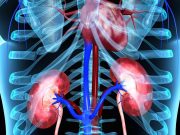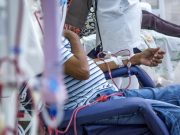Tag: MORT
Mortality Rates From Hypertensive Renal Disease Increased From 1999 to 2023
Highest death rates for hypertensive renal disease were seen among Black individuals; rates also up for Hispanics
Adults With Learning Disabilities, New Diabetes Have Shorter Time to Insulin Initiation
This finding is seen despite evidence of better short-term glycemic control in this population
Prostate Cancer Incidence Trends Increasing
Black men have double the prostate cancer mortality and 67 percent higher incidence than White men
Pace of Improvement in Life Expectancy Has Declined
Previous pace of improvement declined by 37 to 52 percent
Women Have Worse Outcomes Than Men With Beta-Blockers After Acute MI
Incidence of primary end point of death, MI, heart failure hospitalization up with beta-blockers in women, but not in men
59.0 Percent of Overdose Deaths Involved Stimulants in 2021 to 2024
People who died of overdoses involving stimulants and no opioids were older, more often had history of CVD
β-Blockers Not Beneficial After MI Without Reduced Left Ventricular Ejection Fraction
Second study shows beneficial effects for patients with myocardial infarction and mildly reduced LVEF
AI Models Can Help Predict In-Hospital Mortality in ICU Patients With Lymphoma
Highest predictive performance was seen for the CatBoost classifier, with AUC of 0.7766
Overweight Status Appears to Reduce Mortality in Seniors Undergoing Elective Surgery
Lowest 30-day all-cause mortality rate seen for older adults categorized as overweight, while highest rate seen for those with underweight
Spironolactone Does Not Reduce Risk for Cardiovascular Morbidity, Mortality in Patients on Dialysis
No reduction seen in the composite outcome of cardiovascular mortality, hospitalization due to heart failure














